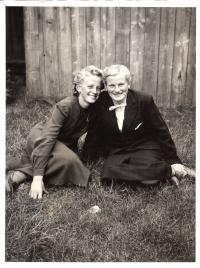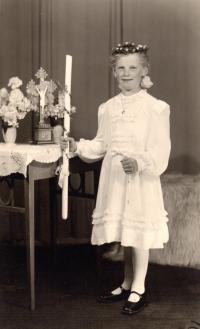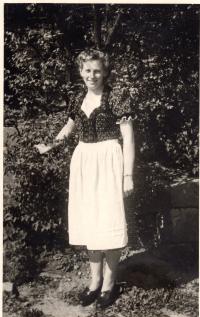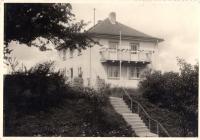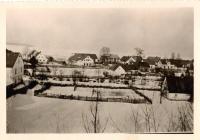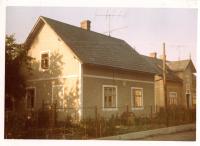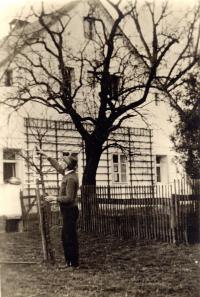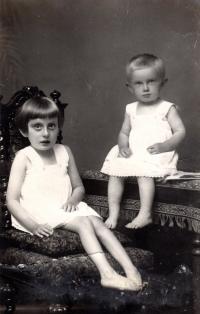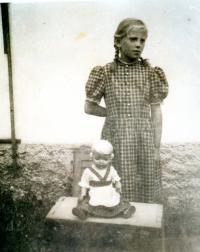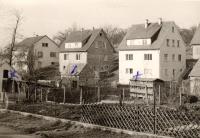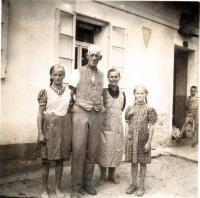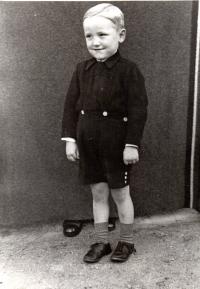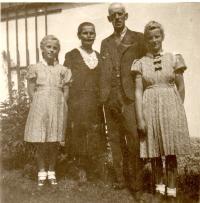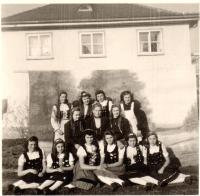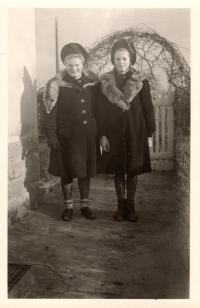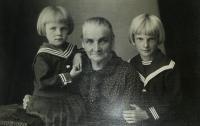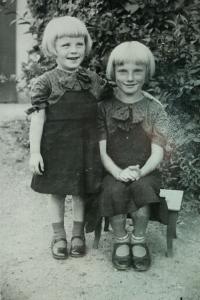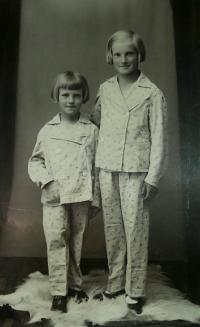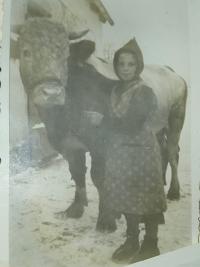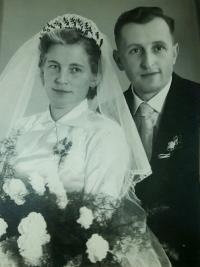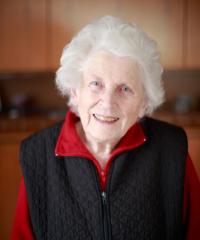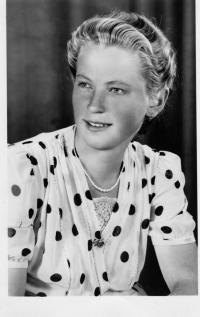Sometimes I think I was really lucky. Very lucky indeed.

Stáhnout obrázek
Maria was born on 2nd April, 1931 in Groß Krosse (Velká Kraš). Her parents, Johann and Emma Pache, had two older daughters, Elisabeth and Margarete. Elisabeth died one month before Mary‘s birth, on her eighth birthday. When she was coming to the world she did not get enough oxygen and could not walk nor talk. In Velká Kraš there was a shooting on September 22, 1938, when the Czech officials were driven out of the free corps from Vidnava. All the time Maria was hiding under the corner bench in the kitchen. Women and children were then evacuated, because they feared revenge on the Czech side and the mobilization to the Baltic Sea to Kolberg. There they were for a whole month. War time was not easy: „No one could be trusted.“ On 7th November 1944 the father called the family behind the barn. In the sky they observed the bombing of Vratislav. A few minutes later an RAF bomber raided 7 bombs. In January 1945 several refugees came from Upper Silesia and slept over at their home. In the night the horses were fed and they went further to Moravia. But when the Scherle family came on 27th January, Mrs. Scherle was pregnant and they stayed some time longer. On the third day the little Hans Scherle was born. When on 8th May 1945 the Russian riders came to the village, all the girls had to hide. The father prepared a hiding place for them in the barn, where they spent the night. They worked in disguise as boys on the field. After the war they got a Czech „administrator“ in their farm, who sold the whole crop and then disappeared. Sister Margarete had to go to forced labour to Bořitov. She fled on a bicycle and on the third day got arrested by the police in Jindřichov. Margarete was sent to jail in Šumperk, and after four weeks was released to go home. The new administrator confiscated the entire house; the family had to go to the grandma‘s. On 30th July 1946 they were shipped with 30 kg luggage to the MUNA in Miklasovice. As their carriage went through Prague, people threw bottles at it. They came to Röttingen in Bavaria. The first years in the new homeland were difficult. Once the pastor at the mass even called them „debris“. In the years 1946-1948 Maria visited a vocational school. As her pastime she had been playing the theater with her sister and several other girls. Later she trained as a furry seamstress in Ochsenfurt, but unfortunately she could not find a job. After a long time she finally found a job at a sewing workshop in Ochsenfurt. She enjoyed sewing a lot. In October 1956 she married Paul Miksch, who was also a native of the town and who came from the town of Šluknov in the Czech Republic. Maria has three daughters - Hannelore, Claudia and Martina. Today she is not able to travel to Velká Kraš - her nerves could not stand it anymore.
